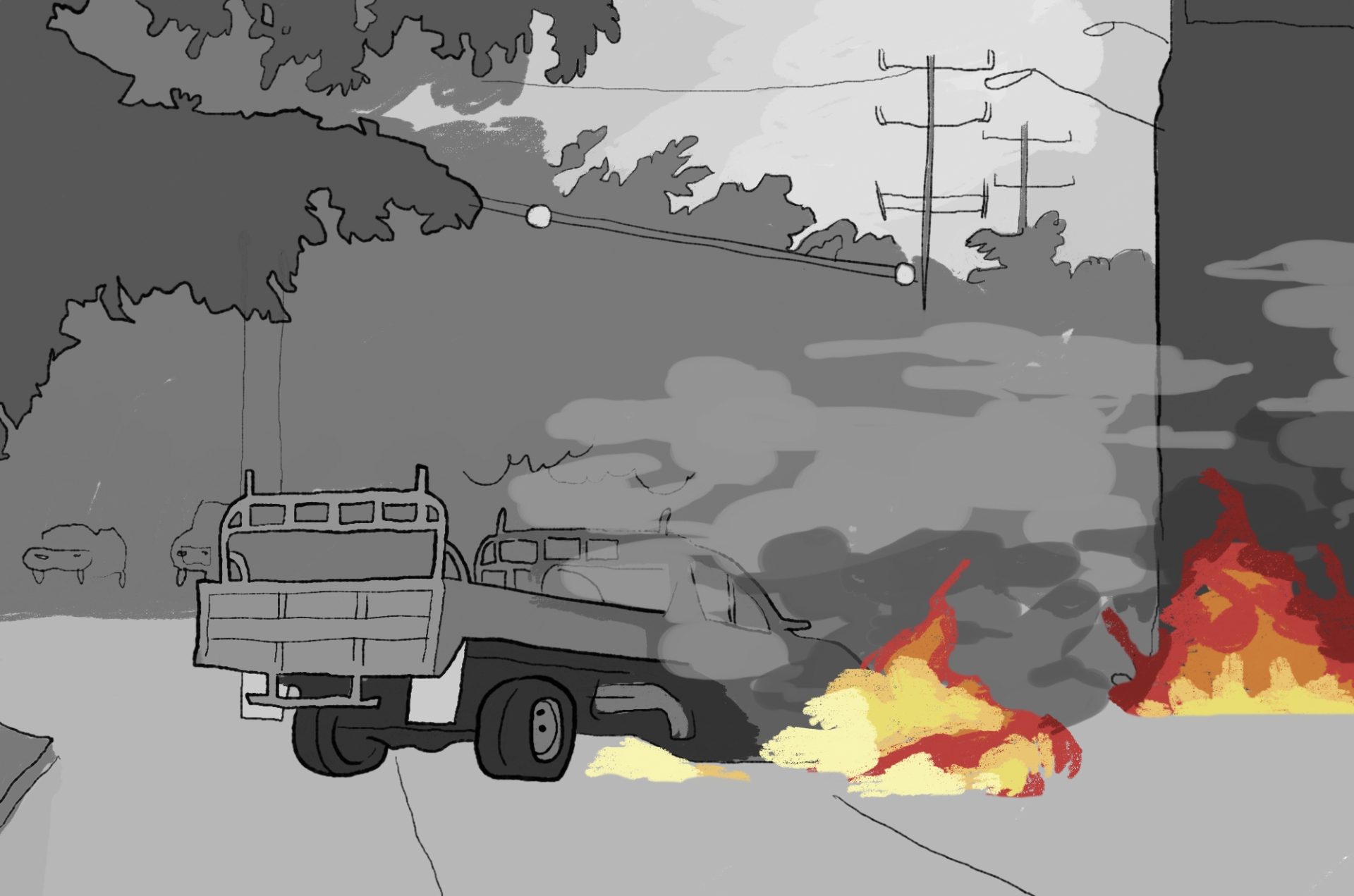
Oct. 17 marked the day of one of the most violent episodes in my home city’s history. In Culiacán, the capital of the Mexican state of Sinaloa, there was a city-wide shootout between military troops and hundreds of members of the Sinaloa drug cartel. The reason: the capture of El Chapo’s son, Ovidio Guzman (now one of the current leaders of the cartel).
The episode most closely resembled an insurgency; accounts of the day are evidenced through videos of burning trucks at highway entrances, makeshift narco tanks and AK-47s parading the streets whilst civilians were stuck in traffic observing the violence. After several hours and 15 civilian deaths, the federal government decided to release Guzman marking an unprecedented defeat of the military in the Mexican Drug War. To explain one of the most violent episodes of Sinaloan affairs, we need to trace its causes from local corruption all the way to the U.S.’s domestic policies.
Though episodes of cartel violence in Sinaloa are not unheard of, this event was unique in its scale of disruption of public life. Family and friends of mine expressed having never experienced anything like it. It was also the first time I ever heard journalists refer to the narcos (members of the cartels), as “terrorists.” Everyone was shocked after witnessing the manipulation of public security in broad daylight, a blatant strong-arming of our military and our federal government. To this day, it might be the clearest proof that more than a decade of Mexican security policies have been futile, and indeed have failed every Mexican citizen.
The fact is that the drug trade does not benefit from chaos, so unlike the Wild West, the Sinaloan population is mostly subjected to a “Pax Narca.” In other words, political clientelism and corruption of local institutions cede great power over all spheres of civic life to the cartels. This helps explain why Sinaloa, and Mexico as a whole, can boast a booming tourism industry and a welcoming market for international investment while still seeing hundreds of people killed. It is unusual to see a shootout in broad daylight, but it is common to hear of other violent events (civilian deaths caused by unknowingly trespassing into drug crops or candidates to local elections being mysteriously assassinated). Drug cartels enable necropolitics; the threat of death serves to control the population’s civic life, and ultimately advance their aims.
Unfortunately, the international media has yet to understand this. Sinaloa is covered only when huge instances of violence occur, sensationalizing the region and its problems. This lack of understanding can also be seen in the U.S.’s foreign policy. An insistence on “kingpin strategies” is at the center of international programs such as the “Merida Initiative,” wherein large amounts of U.S. military aid to Mexico supported violent and aggressive tactics for fighting organized crime. This has only resulted in increased violence and rising homicide rates, creating episodes such as that of Oct. 17. Most recently, President Donald Trump announced his plans to designate Mexican drug cartels as terrorist organizations. This would only add insult to injury by enabling direct U.S. military intervention in Mexico.
These strategies fail to address more essential factors (institutional corruption, economically marginalized communities, etc.), some of which are directly caused by the U.S. It is quite ironic that this “global policeman” is the most immediate neighbor to the largest drug-trafficking organization in the world. There are a number of reasons for this: the U.S. has the highest levels of illegal drug use in the world, the loosest firearm control policies and a history of racist anti-drug policies (i.e. the illegalization of cannabis in 1937). Until these internal issues are addressed, they will be at odds with the aims of current American foreign policy. Nonetheless, the Trump administration will most likely continue betting on violent crackdowns of Mexican cartels, and intensifying pressure on Mexico will most likely become part of Trump’s presidential discourse as elections loom closer.
What American officials and the American electorate need to understand is the myriad of structural factors that have enabled the drug trade in the first place. Explaining it all is beyond the scope of this article, but socio-economic marginalization is worth mentioning and is the easiest to pin down. In a country where most rural communities are marginalized, narcos have stepped in to fulfill the role of institutions, creating clientelist networks. For example, some would argue that El Chapo was the main infrastructure developer of his small town of La Tuna in Sinaloa by paving roads and providing basic services. Current Mexican President Andres Manuel Lopez Obrador has tried to address socio-economic marginalization by aiming to better the Mexican economy, but public security issues still require immediate policies. There is only so much the Mexican government can do when the cartels’ revenues and firearms come from the other side of the border.
Continuing to pursue a heavily militarized security strategy will only make the situation worse. Instead, priorities should be set on controlling the flow of American weapons into Mexico, widespread legalization of cannabis and addressing public health issues tied to the use of cocaine and synthetic drugs. That is why U.S. citizens should care about the reality of citizens in Sinaloa and the rest of Mexico. The drug trade is a transnational issue; more than action, it requires a transnational understanding to be solved. Lest my family, friends and my whole country be doomed to an eternal Pax Narca.
Subscribe to the Mossy Log Newsletter
Stay up to date with the goings-on at Lewis & Clark! Get the top stories or your favorite section delivered to your inbox whenever we release a new issue.

Excelente pero cuidado con los que lo interpretan
Pisa muchos Callos es muy claro lo que detalla
Great Journalism👌🏻 and very interesting topic.